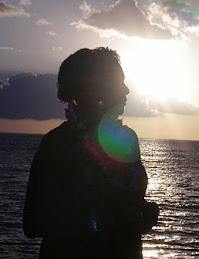I am fascinated by the HBO series “In Treatment,” and particularly actor Gabriel Byrne’s portrayal of the empathetic, insightful, flawed therapist Paul Weston.
Each episode is compelling, in large part because of the exquisite, subtle and nuanced writing. The producers do not rely on some huge revelation or patient breakthrough by the end of each half hour. The audience, the therapist and the patient learn gradually (and sometimes uncomfortably) as the conversations progress.
"In Treatment" also showcases amazing performances by Gabriel Byrne (delivered with his deep, musical Irish lilt) and the actors who play his patients. They manage to wring so much tension out of each episode that it’s only at the end of the half-hour that you realize all you’ve been watching is two or three people in a room, talking.
Watching Dr. Weston’s work with his four patients, and the doctor’s work with his own therapist, is instructive and discomforting at the same time. As a coach, I am riveted by Dr. Weston’s listening ability and process. At the same time, I note with concern the parallels between therapy and coaching.
There is no question that the relationship between coach and client can be therapeutic, and ideally, should have some therapeutic qualities. Yet coaching is not therapy, and is not intended to be. There is an ongoing challenge to maintain awareness of the distinction between those disciplines.
What coaching and therapy share is a foundation of deep listening. During a recent interview on the NPR program “Fresh Air,” Byrne discussed the qualities of listening with host Terry Gross.
“Listening is one of the most profound complements that you can pay to another person.,” said Byrne. “And to feel that you’re heard can be truly fulfilling.”
Gross, often recognized as one of the best interviewers in broadcasting, noted the similarities between Byrne’s portrayal of therapy and her own job: “It’s about listening and asking good questions.”
As Byrne examined his preparation for the role of Paul Weston, he told how he had become an observer of the act of listening, and how that act can be transcendent:
“…[S]he was so absorbed in everything that he was saying…but in the act of engaging with him, by listening, she was outside herself. And I looked at them and realized that that was what the act of listening is – when you’re absolutely absorbed in what the other person is saying. Really, truly, profoundly listening is to be unaware of yourself at a deep level.”
I’m not suggesting that every act of listening needs to be or should be done at the level described by Byrne. Yet the various levels of listening, and the power of being absorbed in another person’s words and even their silence, are tools available to everyone – therapists, actors, interviewers – and coaches.
Wednesday, May 6, 2009
Subscribe to:
Post Comments (Atom)




No comments:
Post a Comment